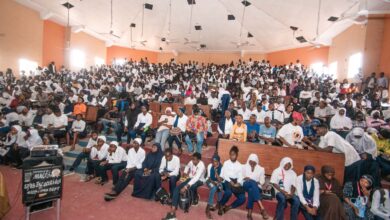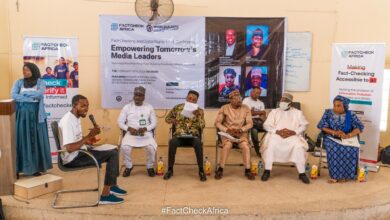Global Coalition for Tech Justice Holds Conference Urging Action Against Harmful Online Content

By: Sultan Usman
In a virtual conference convened by the Global Coalition for Tech Justice (GCTJ) on Tuesday, April 16th, 2024, tech experts and activists united to address the pressing issue of tech platforms’ failure to safeguard people and democracy during elections. The event, hosted via Zoom, brought together 33 participants.
The conference commenced with Alexander Pardal, Co-Executive Director at Digital Action, setting the stage by emphasizing the critical importance of the online gathering. Pardal elucidated Digital Action’s investigations, particularly focusing on collaborations with the Legal Resources Centre (LRC) and Global Witness.
He underscored the role of the GCTJ in alliance with 215 civil society organizations and tech enthusiasts worldwide, advocating for equitable measures to protect global elections and citizenry.
Addressing the audience, Pardal delved into the impact of content moderation policies and the proliferation of violence, hatred, and disinformation across online platforms. Of particular concern was the utilization of AI in content manipulation, which has sparked numerous scandals and manipulation campaigns.
Kristen Abrahams, a candidate attorney at Legal Resources Centre, spotlighted the imminent threat posed by disinformation, hate speech, and incitement to the upcoming South African elections in May 2024.
Abrahams highlighted instances of political parties disseminating propaganda and harmful content online, exacerbating societal divisions and undermining democratic processes. Despite efforts by organizations like Media Monitoring Africa, Abrahams lamented the lack of proactive engagement from advertising and online platform companies in addressing these issues.
Ritumbra Manuvie, Co-Founder and Executive Director at The London Story emphasized the profitability of online platforms through advertisement revenue, often at the expense of spreading fake news and inciting threats to democracy. Manuvie proposed government intervention, suggesting a common platform like the G20 to establish minimum standards for platform governance, particularly regarding elections and democracy.
Maen Hammad, a human rights activist and researcher at EKO, provided insight into the real-life repercussions of tech platform failures, particularly in countries heavily reliant on online platforms for democratic discourse. Hammad condemned the inadequate response of civil societies in addressing hate speech and disinformation, citing the mob attack on the US Capitol in January 2021 as a glaring example of the erosion of democratic principles facilitated by online incitement.
In a unanimous resolution, participants warned of dire consequences should no action be taken by tech platforms and regulators to curb harmful content. Digital Action issued a resounding call to online platforms, including Twitter, Facebook, and Instagram, to implement sanctions against hate speech, disinformation, and misinformation. The conference concluded with a commitment from Digital Action to persist in holding organizations and Big Tech platforms accountable until substantive measures are taken to combat harmful content.



